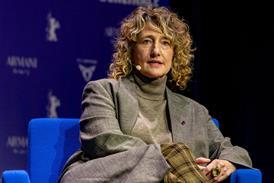German Producers Alliance calls for changes to a future guarantee fund and retention of MEDIA Desks/Antenna.
The UK’s Department for Culture, Media and Sport (DCMS) have invited individuals and organisations within the British creative community to participate in a consultation seeking views on the European Commission’s (EC) proposal for the new Creative Europe programme for the period of 2014-2020.
The DCMS has drawn up 24 questions on the EC’s proposal which would replace the current Culture, MEDIA and MEDIA Mundus programmes that are set to end in December 2013.
Participants in the consultation are asked, for example, whether they agree “that the three current programmes should be replaced by a single programme with separate Cross-sectoral, Culture and MEDIA strands” and what the impact would be “if there were no EU programmes for the cultural and creative sectors.”
Looking at the proposed new financial facility which would take the form of a debt instrument operating alongside European financial institutions to provide loans for SMEs, the consultation asked if there was “a risk that such a financial facility could create market distortions” and whether it would “be of greater benefit to some sub-sectors than others.“
Another issue was “the level/proportion of the financial allocation for the programme [which] should be allocated to such a financial facility.”
The EC is proposing a budget of €1.8bn at current prices of over seven years, with an indicative budgetary allocation of 15% for the cross-sectoral strand (including the new financial facility), 30% for the Culture strand, and 55% for the MEDIA strand.
The deadline for responses to the DCMS consultation on Creative Europe is March 16 to creative.europe@culture.gov.uk.
Meanwhile, the Berlin-based German Producers Alliance (GPA) has already published a paper with its response to the EC’s plans.
While welcoming the continuation of the MEDIA and MEDIA Mundus within the framework of Creative Europe, the producers’ association noted a word of caution about the intended budget for the new structure by recalling that the current MEDIA Programme (from 2007-2013) had initially been looking at an overall budget of €1bn: “as is well known, this ambitious goal was reduced in the consultations of the Budgetary Committee to the level of around €750m, so there is a threat that the new programme may also experience cuts in the Budgetary Committee which would then again undo the increase [of a planned 37% over MEDIA 2007].”
Moreover, GPA was particularly critical of the MEDIA Guarantee Fund which has been operating under the current MEDIA Programme for the past two years, and argued that the fact that in 10 countries only loans worth a total of €15m had been realised “shows clearly the market failure of this programme.”
“The reason for this is that banks are involved who are allocating funds according to risk criteria customary to banking,” the Alliance suggested and recommended that the guarantee fund be revamped as a venture capital fund.
The German producers also came out in strong support for “the preservation of the MEDIA Desks and MEDIA Antennas as an indispensable instrument for information about the Creative Europe programme.”
“Without information available locally the programme would only be worth half as much,” they concluded.
Meanwhile, as the DCMS points out, negotiations on the Creative Europe proposal will be be pursued in the Council of Ministers under the Danish Presidency of the Council in the first half of 2012 and then continue during the Cypriot Presidency from July onwards. Ideally, they should be completed in the first part of 2013 during the Irish Presidency of the Council.
The European Parliament (EP) will also consider the proposal – with Italian MEP Silvia Costa serving as rapporteur for the Culture and Education Committee’s deliberations on Creative Europe – and, together with the Council, agree on the final version before it can be formally adopted.
In another development last week as part of Denmark’s Presidency of the Council, the Danish Minister for Culture Uffe Elbaek convened 13 European personalities in Copenhagen as Team Culture 2012 “to investigate the way in which culture and art can play a decisive role for Europe in the midst of the financial crisis.”
Until June, the group will seek out answers to how art and culture can contribute to solving these challenges. Firstly, each group member will find a concrete European example of how culture can contribute to a solution of one or more of the challenges. Secondly, the group will jointly draw up a manifesto with recommendations for the general public and politicians of Europe. Both will be presented in Brussels to the EU’s ministers for culture, members of the European Parliament’s Committee on Cultural & Education, and representatives of the European public.
The members of Team Culture 2012 include, from the film world, Danish producer Vibeke Windeløv of Windelov Productions and Oscar-winning UK film director James Marsh.






















No comments yet